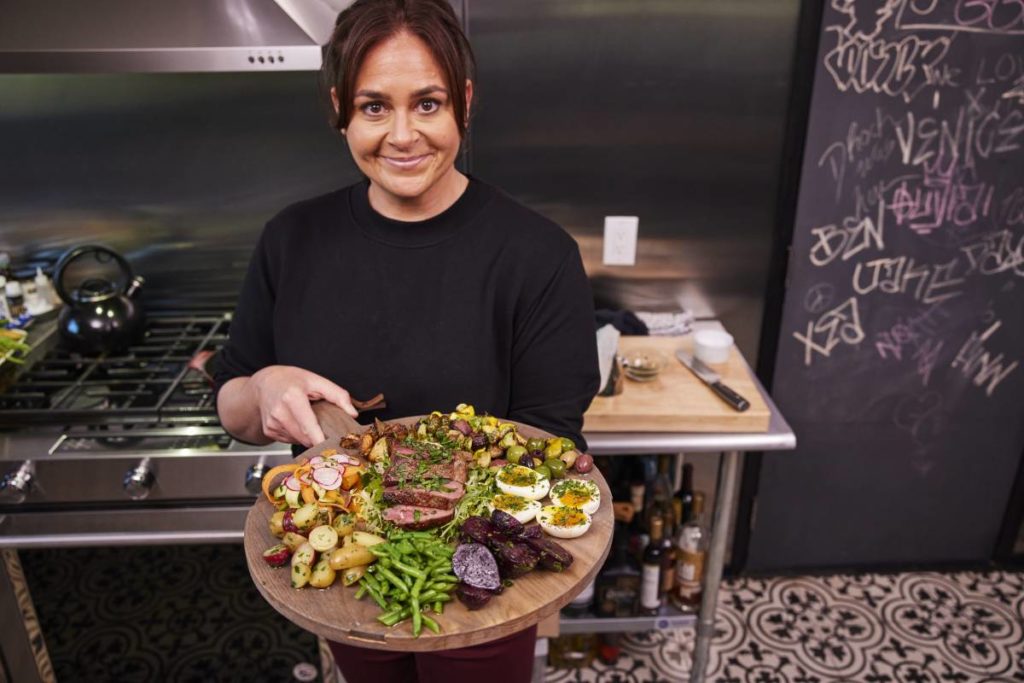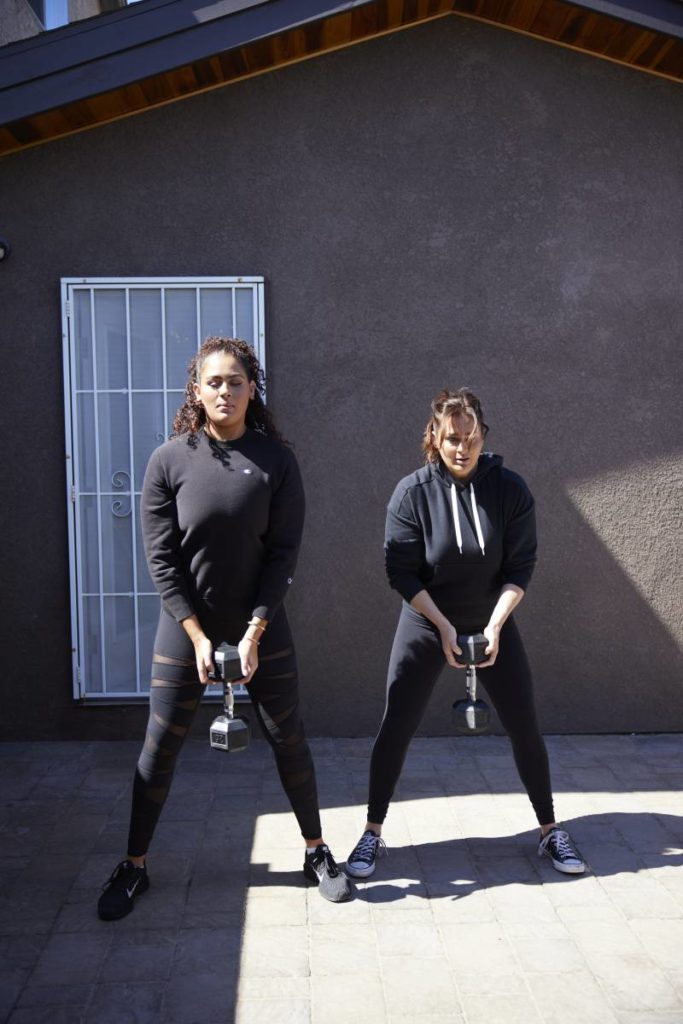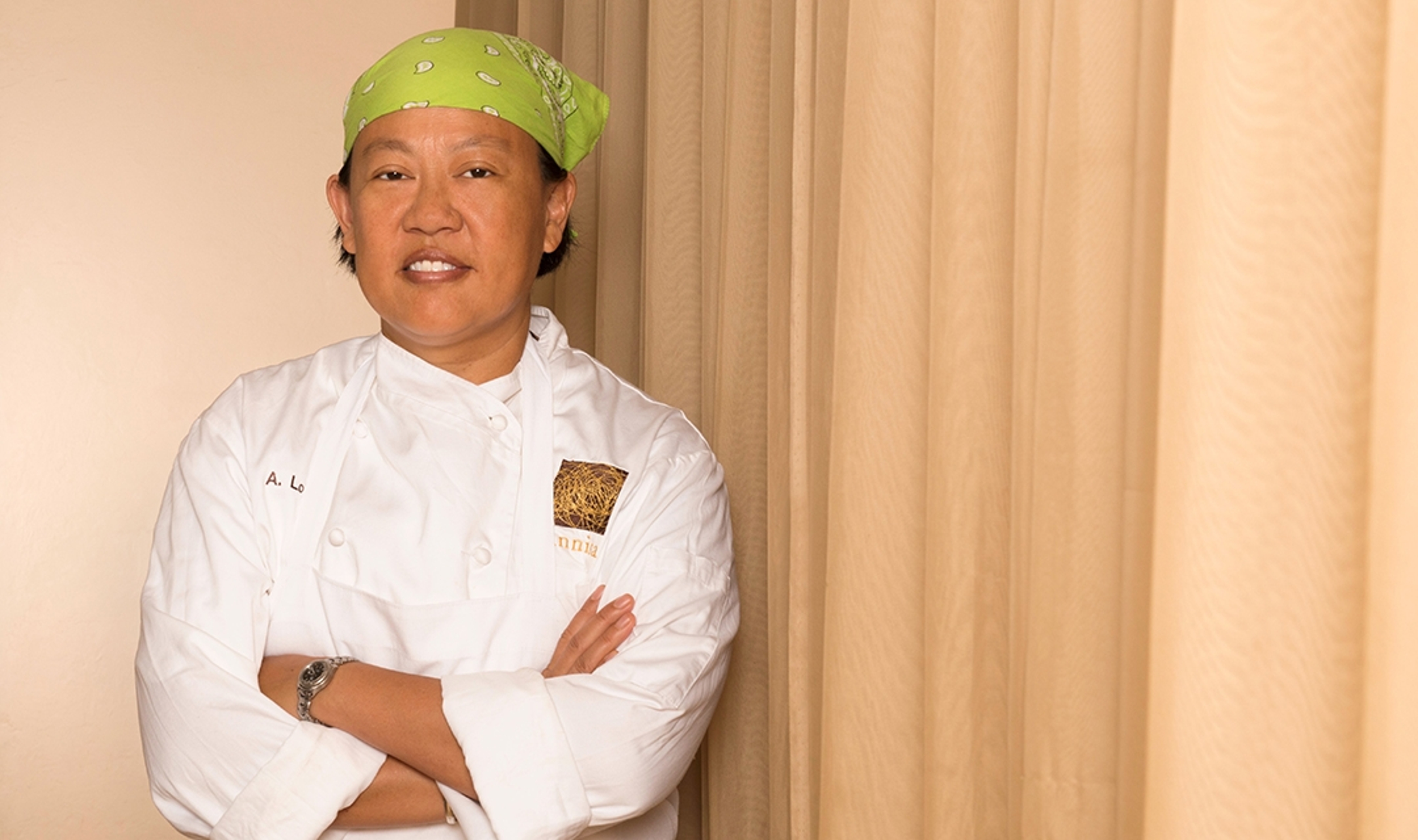Antonia Lofaso Is LA’s Leading Lady. Just Call Her Chef
The former Top Chef contestant bounced back from an early career failure to achieve great success in the kitchen.
Jul 30, 2021
If you're a fan of cooking shows, you've most likely seen Antonia Lofaso in action as a judge, competitor, and instructor. When she's not in front of the camera, Lofaso splits her time between running three top restaurants in greater Los Angeles — DAMA, Scopa Italian Roots, and Black Market Liquor Bar — and spending quality time with her daughter, Xea.
While Lofaso has rightfully earned the title of celebrity chef, she began her career humbly in the kitchen of her family's home on Long Island, New York, where her mother ingrained in her a deep sense of appreciation for food and feeding others.
“Growing up, cooking in my house was mandatory. It was how we showed our love and compassion for each other," Lofaso says. “I joke all the time that if the cable guy came over, my mother would ask, 'Did you make him a sandwich?'"
When did you first know you wanted to become a chef?
I always loved food and wanted to be around food. When I was a teenager, all I did was work in restaurants. And when I moved to New York City for college, I was still working in restaurants. Between classes and work, I found that I would pay more attention to what the chefs were doing, and I was like, “What if I went to culinary school?"
Aside from your mother, who else has inspired you throughout your career?
When I graduated from culinary school, I worked for Wolfgang Puck for many, many years. That's where some of my greatest mentors and inspiration came from: Wolfgang, Lee Hefter, Ari Rosenson, David McIntyre. They taught me the business, but they also showed me the determination and precision that come with being a chef.
Those are some big personalities. How would you describe yourself as a chef? What's your kitchen personality?
I'd say that I'm a mentor, a teacher, and a communicator. I believe in building my team up. I've worked in a lot of restaurants where they've created an environment of fear, but mine is a teaching environment.
How do you want people to feel when they're eating your food?
I want them to feel happy. I want my food to create an experience and a memory. I remember watching my mother making a special meal for my father when he had a hard day at work and thought that was so incredible. She made this meal, and he felt better.

When you started, there weren't as many women in head chef roles. Do you think the industry has shifted, become less male dominated?
Definitely! There are more women in culinary school than there's ever been. There are more women working in restaurants in general. Looking back, the greatest male chefs around the world — chefs like my mentors — were inspired by their grandmothers, their mothers, and their aunts to work in professional kitchens. So, it's like, we inspired it, and now we're doing it too.
Is it important for you to be recognized as a female chef?
No. I always like to say that the word “chef" is neither male nor female. It's just “chef."
What was it like being an executive chef for the first time, opening your first restaurant?
It was a complete and utter disaster. There's no way to sugarcoat it. I didn't know what I was doing, but, more importantly, I didn't know who I was. I didn't really have a voice in food, and it showed in that restaurant.
What was the biggest lesson you learned from that experience?
To fail is 100% inevitable. It's what you do after you fail — get up, wipe your knees off, stop crying, figure out what you did wrong, and start over.
Your Instagram is filled with photos of you working out. Why is exercise so important to you?

In order for me to do what I do — run three restaurants, fly all over for cooking appearances, do television — I need to be in the best fighting shape. We look at fighters and the way that they prepare for their match. It's the same exact thing. Too many times, chefs are pigeonholed into this unhealthy lifestyle. You've seen us being crazy drinkers and partying and eating large burgers. I just ate an entire donut — I don't stop eating. You can't work 80 hours a week in a restaurant and not drink water and not get sleep and not exercise and not eat healthy. My love of exercise and nutrition really just comes through years of me beating my body up in my work.
In 2008 your career took a slight detour when you competed on season four of Top Chef. What made you interested in TV?
I kind of tripped and fell face first into television. When I started culinary school 23 years ago, there wasn't food television, so it wasn't really something that I sought. But as I got older and wanted to make the most of my career, I found it's something that interests me. Plus, I went through a “yes" phase where I wanted to say yes to all the things that many people say no to. So, I did it, and the response was really unexpected. Viewers responded to my being a single mother who was chasing her dreams, and this positive reinforcement pushed me to keep doing it.
When you look back on all that you've accomplished so far, what are you most proud of?
To make it in hospitality, you need to have grit and ambition. I am so proud that so many men and women have worked in my kitchen and had no strong background in cooking — some started as dishwashers — and now they are running things, making huge salaries because of hard work and determination.
What advice do you have for folks who want to improve their cooking, or maybe even try it for the first time?
The simplest advice is just cook. There is no magic pill that is going to get you from point A to point B faster. You need to cook all the time, every night of the week, until you've mastered the dish.





